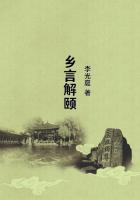Letters to Mrs. Lee from Richmond and Savannah--From Brandon--Agnes Lee's account of her father's greetings from old friends and old soldiers--Wilmington and Norfolk do him honour--Visits to Fitzhugh and Robert in their homes It is to be regretted that so little was written by my father while on this trip. In the letters extant he scarcely refers to his reception by the people at different points visited. His daughter Agnes tells more, and we can imagine how tenderly and joyfully he was greeted by his old soldiers, their wives, children and friends.
He was very unwilling to be made a hero anywhere, and most reluctant to show himself to the crowds assembled at every station along his route, pressing to catch sight of him.
"Why should they care to see me?" he would say, when urged to appear on the platform of the train; "I am only a poor old Confederate!"
This feeling, natural to him, was probably intensified at that time by the state of his health. On Sunday he writes to my mother of his trip to Richmond and of his stay there:
"Richmond, Virginia, March 29, 1870.
"My Dear Mary: I reached here Friday afternoon, and had a more comfortable journey than I expected. The night aboard the packet was very trying, but I survived it, and the dust of the railroad the following day. Yesterday the doctors, Huston, McCaw, and Cunningham, examined me for two hours, and I believe, contemplate returning to-day. They say they will make up their opinion and communicate it to Doctor Barton, who will write me what to do. In the meantime they desire me to continue his prescriptions. I think I feel better than when I left Lexington, certainly stronger, but am a little feverish. Whether it is produced by the journey, or the toddies that Agnes administers, I do not know. I have not been able to see anybody, nor was I able to get the groceries yesterday.
Agnes thinks you will have enough to last till I get back here, when I will select them and send them up. Should you want any particular article, write to Messrs. Bacon & Lewis for it. I saw, yesterday morning, Mr. John Stewart and Miss Mary [Miss Mary Stewart, of "Brook Hill," afterward Mrs. Thomas Pinckney, of South Carolina.], who had called to see Agnes but found she was out. Miss Mary looked very sweet, and inquired about you all. Agnes rode out there yesterday afternoon and saw all the family. I am told all our friends here are well. Many of my northern friends have done me the honour to call on me. Among them 'Brick Pomeroy.' The like to see all that is going on. Agnes has gone to church with Colonel Corley.
I was afraid to go. The day is unfavourable, and I should see so many of my old friends, to whom I would like to speak, that it might be injurious to me. I was in hopes that Fitzhugh might make his appearance yesterday, when we should have learned all about those below, but he did not. I hear that they are all well, however. I expect to continue our journey to-morrow, if nothing prevents, though I have not yet got the information I desire about the routes. Still, I will get on. I will leave to Agnes to tell about herself. Love to all, Truly, R. E. Lee."
The next letter that I find is written from Savannah:
"Savannah, Georgia, April 2, 1870.
"My Dear Mary: I reached here yesterday evening and have borne the journey much better than I expected. I think I am stronger than when I left Lexington, but otherwise can discover no difference. I have had a tedious journey upon the whole, and have more than ever regretted that I undertook it. However, I have enjoyed meeting many friends, and the old soldiers have greeted me very cordially. My visit to dear Annie's grave was mournful, yet soothing to my feelings, and I was glad to have the opportunity of thanking the kind friends for their care of her while living and their attention to her since her death. I saw most of the ladies of the committee who undertook the preparation of the monument and the inclosure of the cemetery, and was very kindly received by all the citizens of Warrenton, and, indeed, at all the towns through which we passed. Yesterday, several gentlemen from Savannah met the train in which we came from Augusta--General Lawton, Mr. Andrew Lowe, Mr. Hodgson, etc., etc. I found they had arranged among themselves about my sojourn, so I yielded at once, and, after depositing Agnes at General Lawton's, I came off to Mr. Lowe's, where I am now domiciled. His house is partially dismantled and he is keeping house alone, so I have a very quiet time. This morning I took a short drive around the city with Agnes and Miss Lawton, and on returning called on Mrs. Elliot, who has her two widowed daughters living with, Mrs. Elliot and Mrs. Habersham.
I also went to see Mrs. Gordon, Mrs. Gilmer, and Mrs. Owen, and then returned to the Lowes', where I find he has invited some gentlemen to meet me at dinner--General Joe Johnston, General Lawton, General Gilmer, Colonel Corley, etc. Colonel Corley has stuck to me all the journey, and now talks of going to New Orleans. The weather to-day is rather cool and raw, with an easterly wind, and if it continues I will go on to Florida next week. The woods are filled with flowers, yellow jasmine covering all the trees, etc., and fresh vegetables everywhere. I must leave Agnes to give you all the details. The writing-desk is placed in a dark corner in this handsome house, prepared for younger eyes than mine, and I can hardly see what I write. All friends inquire after you, Custis, Mary, and Mildred. Give my love to all, and believe me, "Most truly, R. E. Lee.
"Mrs. R. E. Lee."
The Colonel Corley mentioned in the above letters had been on General Lee's staff, as chief quartermaster, from the time he assumed command of the Army of Northern Virginia until the surrender. His voluntary service as escort on this trip, so delicately offered and performed, was highly appreciated by his old commander. A letter from his daughter to her mother, written the next day tells many particulars of their journey, but still leaves much to be desired:
"Savannah, Georgia, April 3, 1870.














